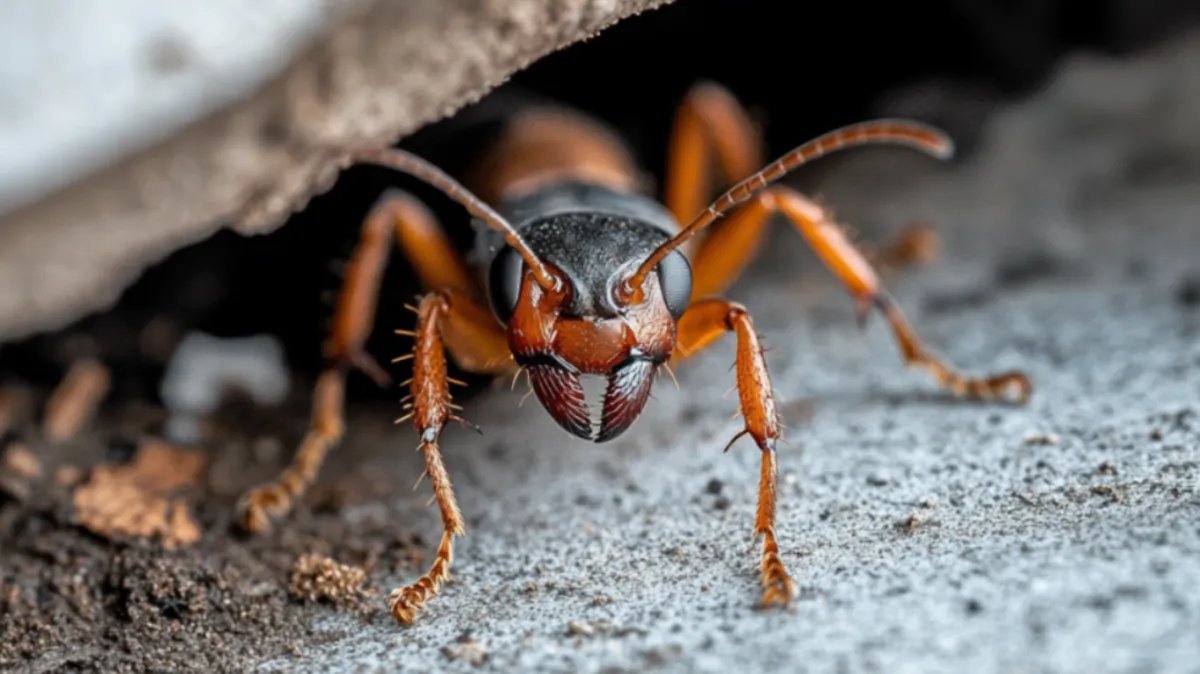
The Portland Pest Journal
The Portland Pest Control Journal

Mid-Summer Pest Check: Keeping Portland Homes Secure
Why Mid-Summer Pest Control Is Crucial
By July, temperatures in Portland, TX reach their peak—and so does pest activity. The intense heat, combined with increased humidity, creates ideal conditions for pests to flourish. Ignoring pest control during this time can lead to serious consequences for your home and health. Here’s why mid-summer vigilance is essential:
1. Breeding Surges: Rapid Pest Population Growth
Warm weather accelerates insect breeding cycles, allowing pests to multiply exponentially.
Houseflies can lay hundreds of eggs at once in warm, moist environments like trash bins or compost.
Ant colonies expand aggressively in the heat, often splitting into new satellite nests.
Roaches reproduce faster in humid indoor spaces like kitchens and bathrooms.
Spiders follow other insect activity, setting up webs in garages, corners, and window frames.
2. Indoor Invasions: Cool Homes Attract Warm-Weather Intruders
Pests instinctively seek out shaded, cooler environments as outdoor temperatures rise.
Common entry points include cracks in foundations, unsealed vents, gaps under doors, and torn window screens.
Homes with leaking pipes or indoor humidity issues become hotspots for pests like silverfish, centipedes, and roaches.
As a result, mid-summer often brings the highest number of calls for indoor infestations.
3. Health Risks: Harmful Pests Pose Real Dangers
Cockroaches and flies carry harmful bacteria like Salmonella and E. coli, spreading illness on surfaces and food.
Their droppings, shed skin, and saliva can also trigger asthma and allergies, especially in children and the elderly.
Spiders, especially species like the brown recluse or black widow, can deliver painful and dangerous bites when disturbed.
Infestations around food prep areas or sleeping quarters raise the health risk even more.
Top Mid-Summer Pests & How to Handle Them
As summer reaches its peak in places like Portland, TX, pest activity ramps up dramatically. Identifying and controlling the most common mid-summer intruders is key to protecting your home and maintaining a healthy living space. Here’s a closer look at the biggest offenders and how to stop them in their tracks:
1. Flies – Fast-Breeding Nuisances
Flies aren’t just annoying—they’re unsanitary and incredibly fast at reproducing. They’re drawn to anything organic: trash, food, compost, and even pet waste.
Why They’re a Problem:
Can spread diseases like E. coli and Salmonella by contaminating food surfaces.
Multiply rapidly in hot, moist environments—especially around garbage bins and drains.
Control Tips:
Clean and disinfect garbage bins at least once a week.
Install or repair screens on all doors and windows to keep flies out.
Don’t leave food or drinks uncovered during outdoor meals or BBQs.
2. Ants – Persistent Invaders
Ants are tiny but relentless. Fire ants, carpenter ants, and sugar ants are common in mid-summer, often forming large colonies near foundations or in kitchens.
Why They’re a Problem:
Fire ants deliver painful stings.
Carpenter ants can damage wood structures.
Their foraging trails often lead directly into homes and pantries.
Control Tips:
Seal cracks in foundations, walls, and around windows and doors.
Remove pet food, birdseed, and outdoor water sources.
Keep food sealed in airtight containers—especially sweets and grains.
3. Cockroaches – The Resilient Crawlers
Cockroaches thrive in warm, damp conditions and can spread quickly once established indoors. Their presence usually signals an underlying moisture or sanitation issue.
Why They’re a Problem:
Known carriers of allergens and bacteria.
Often hide in hard-to-reach areas: behind appliances, under sinks, and in cracks.
Can survive in surprisingly small spaces with very little food or water.
Control Tips:
Repair any leaking pipes, especially under sinks and in basements.
Regularly vacuum and clean behind and beneath stoves, fridges, and dishwashers.
Keep bathroom and kitchen drains dry overnight to cut off water sources.
4. Spiders – Silent Web Builders
Although most spiders are harmless, species like the brown recluse or black widow can be dangerous. Spiders tend to move indoors in mid-summer, following other insects (their food) inside.
Why They’re a Problem:
Webs accumulate quickly in corners, ceilings, and storage spaces.
Bites from venomous spiders may require medical attention.
Their presence signals an existing insect issue.
Control Tips:
Remove cobwebs frequently, especially in corners and storage areas.
Declutter basements, attics, closets, and sheds to eliminate hiding spots.
Shake out clothing, towels, and shoes stored on the floor before use.
Pest Surveillance: Why Routine Checks Matter
Mid-summer pest issues in Portland, TX often go beyond what you can see crawling across the floor. Some of the most destructive pests remain hidden until it’s too late. That’s why routine pest surveillance from Total Pro Pest Control is a vital part of any long-term prevention plan. Here’s what our mid-summer pest checks include—and why they matter:
1. Comprehensive Inspections
We start with a top-to-bottom examination of your home and property to detect current and potential pest activity.
Our inspections include:
Interior Checks: We evaluate baseboards, kitchen cabinets, under sinks, and around appliances—places pests love to hide.
Windows & Doors: Screens, frames, and thresholds are examined for tears, gaps, or signs of nesting.
Yard & Landscaping: Shrubs, mulch beds, and garden edges are checked for nests, ant mounds, and standing water.
Storage Zones: Attics, garages, crawlspaces, and sheds are inspected for cobwebs, droppings, and burrows.
2. Entry Point Detection
Most pests enter homes through tiny openings that often go unnoticed. We pinpoint these vulnerable access points and recommend (or perform) immediate sealing.
We look for:
Cracks in foundation walls, brick, or stucco
Gaps around utility lines and pipes entering the home
Damaged weather stripping on doors and windows
Holes in attic vents, soffits, and eaves
Torn window screens or missing screen mesh
No matter the season, Total Pro Pest Control is here to keep your family safe from unwanted invaders. Our mid-summer services ensure you can enjoy the rest of the season without pests disrupting your home or outdoor fun.

Schedule a Pest Inspection
Ready to schedule a pest inspection? Contact us today.

